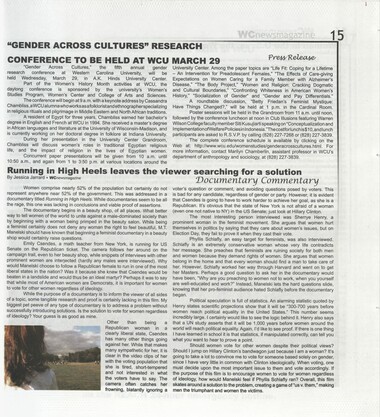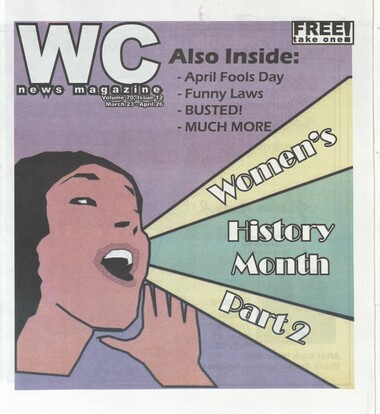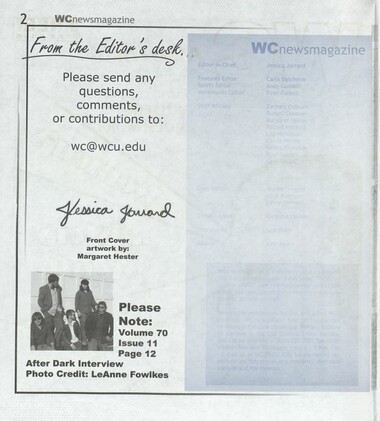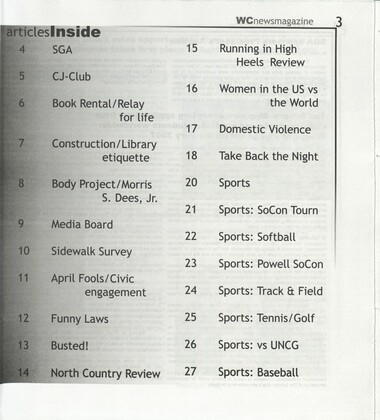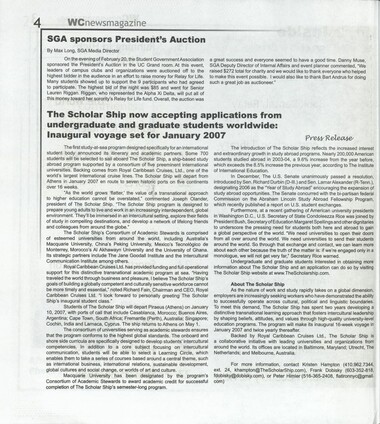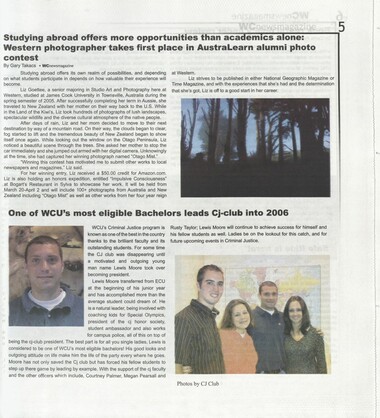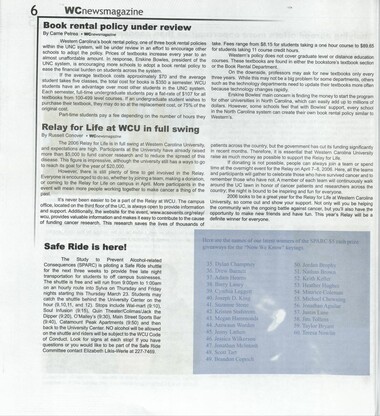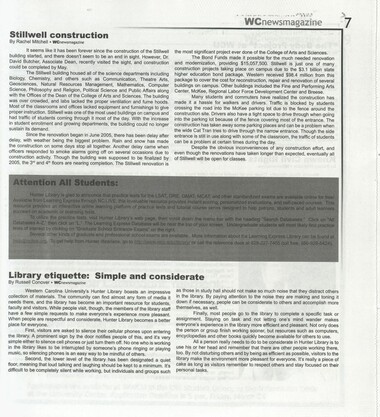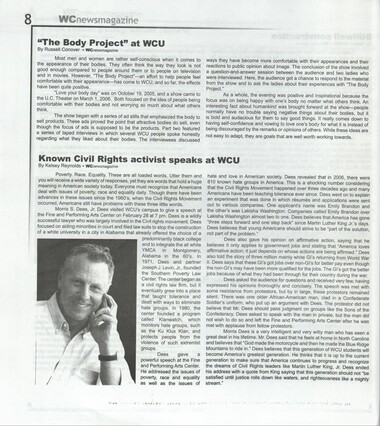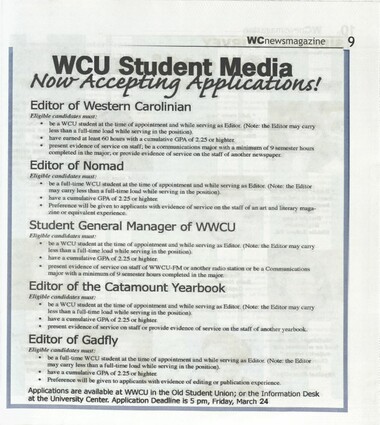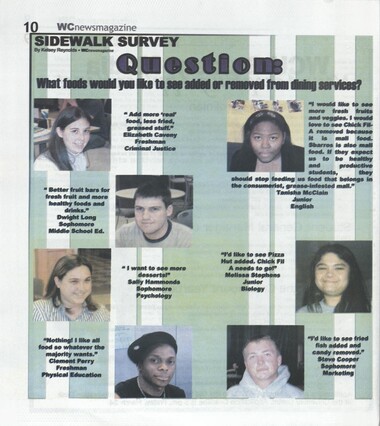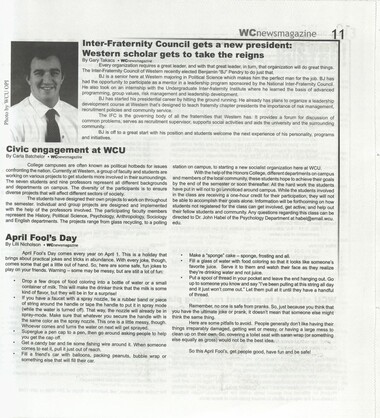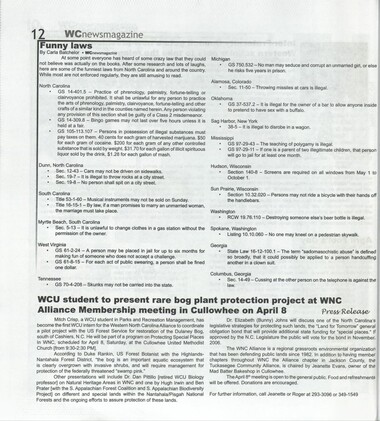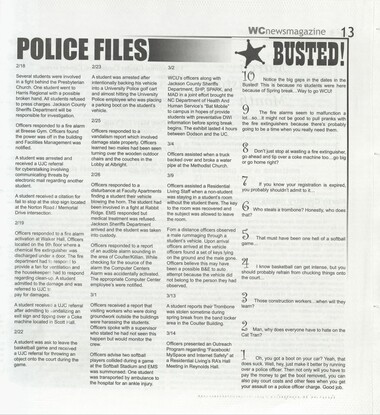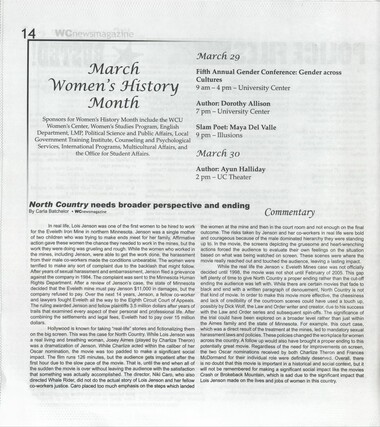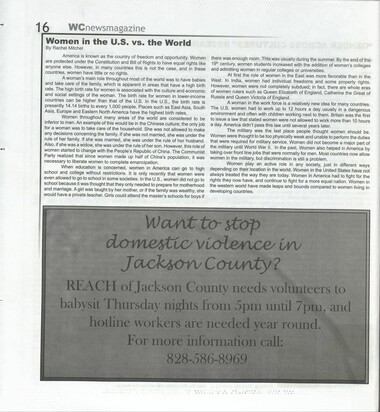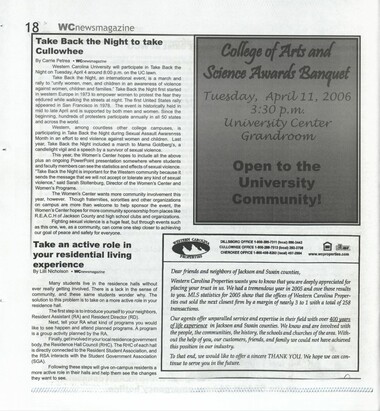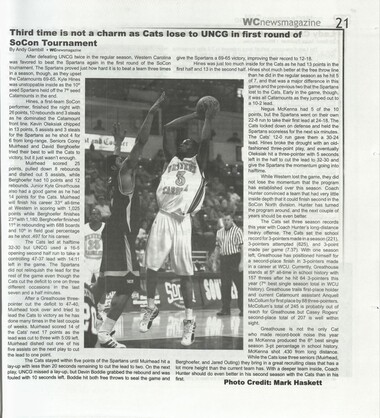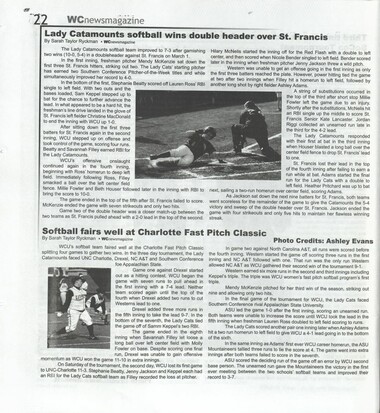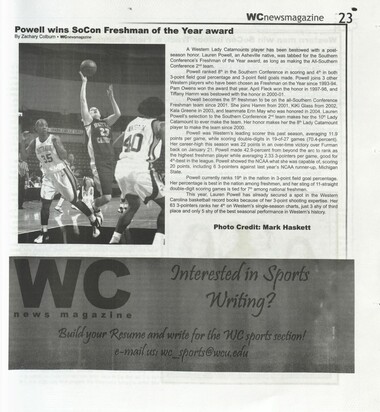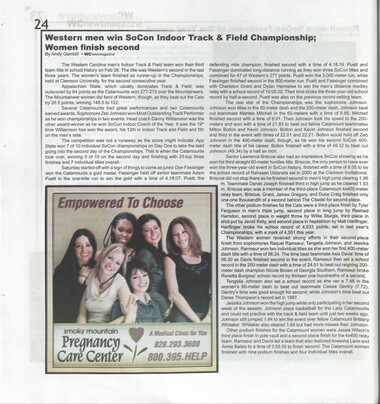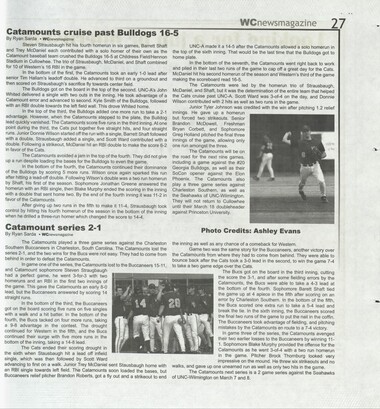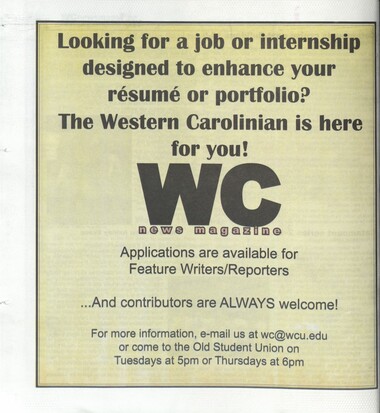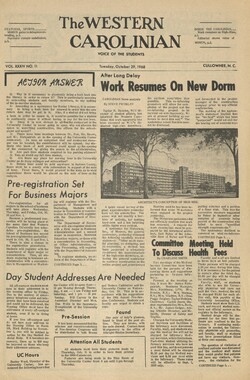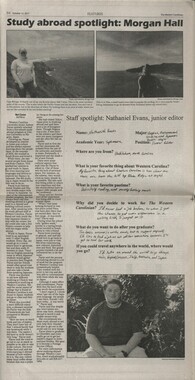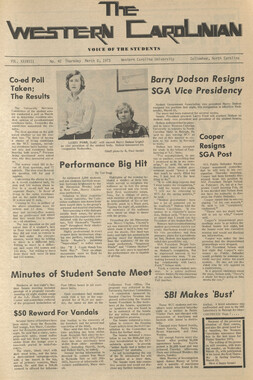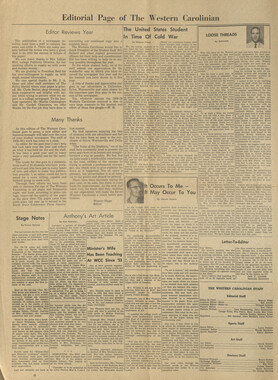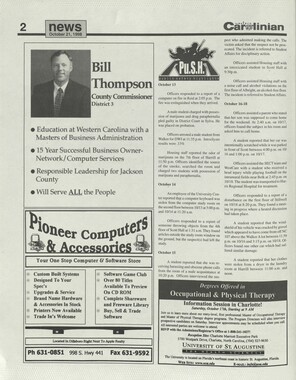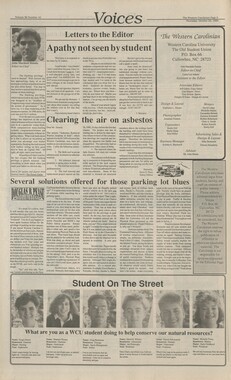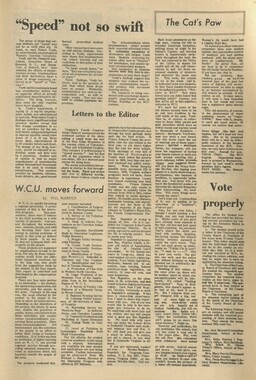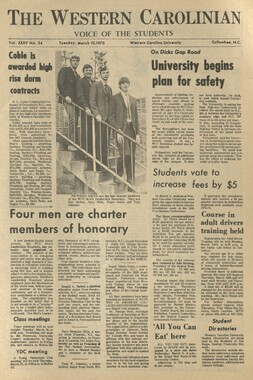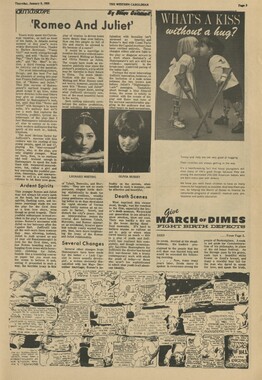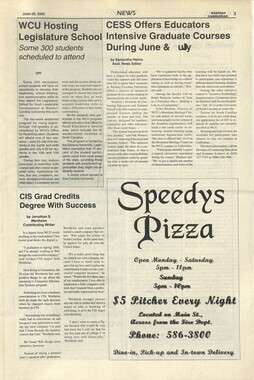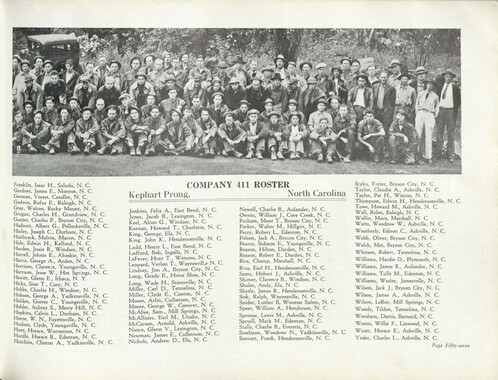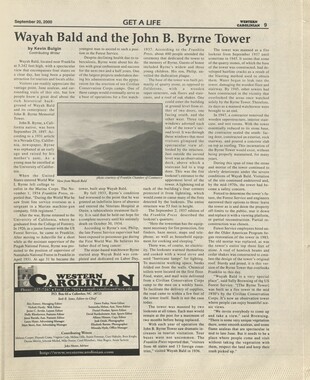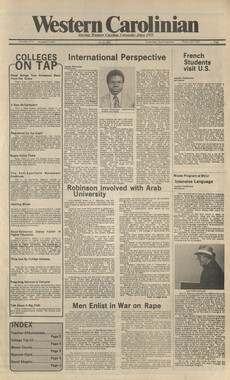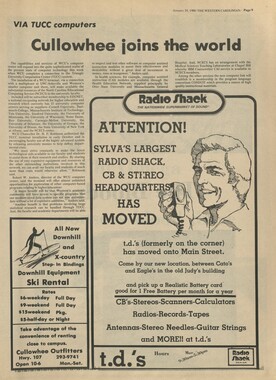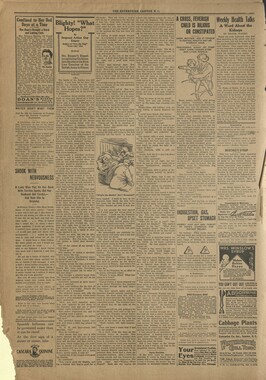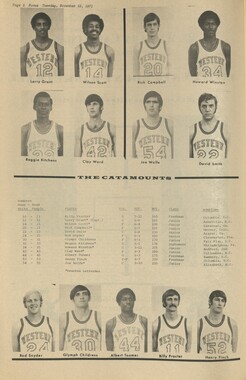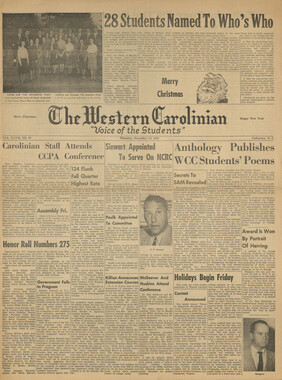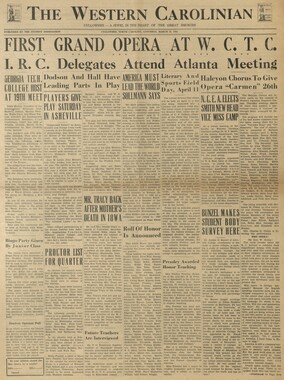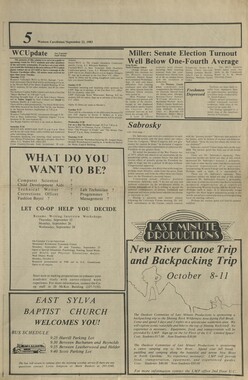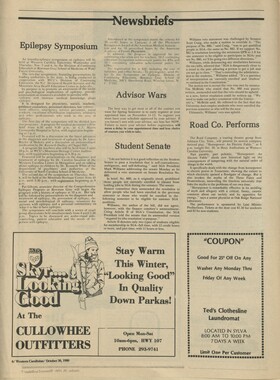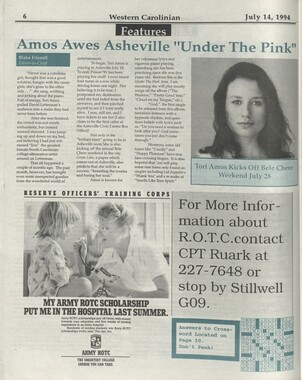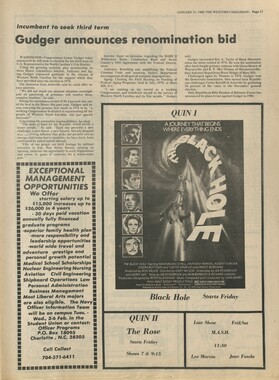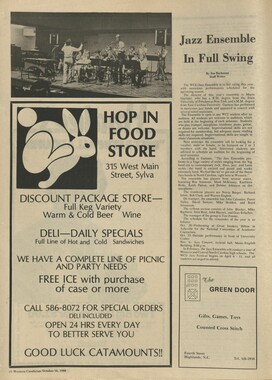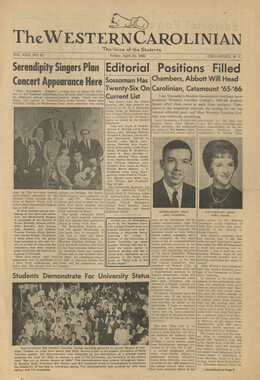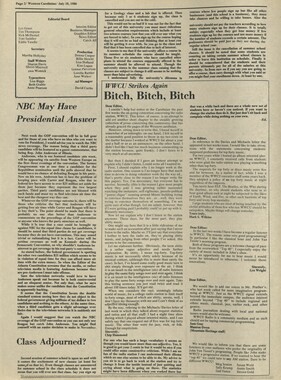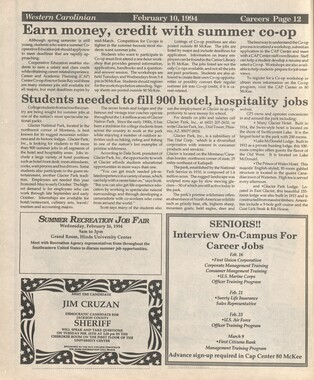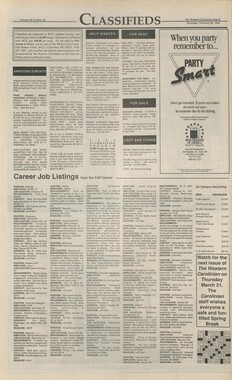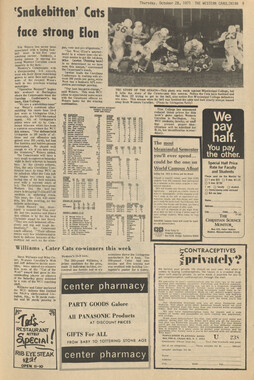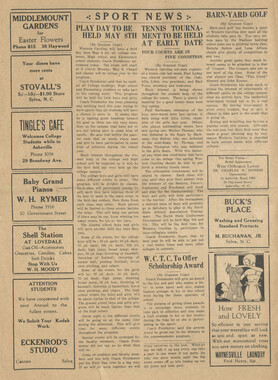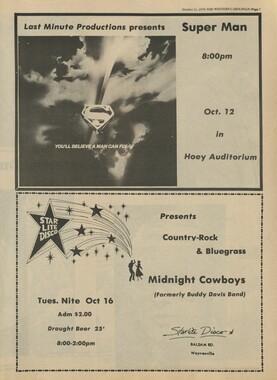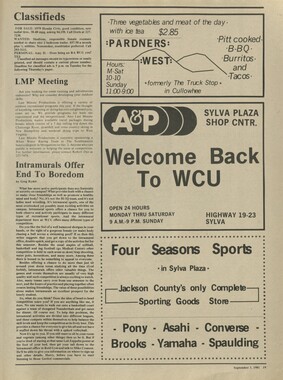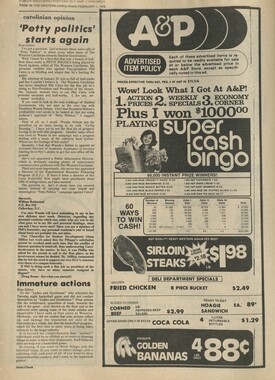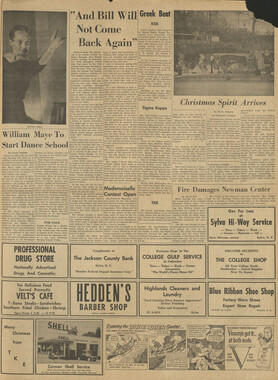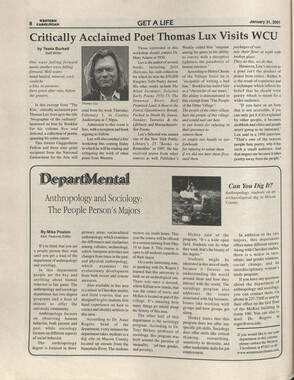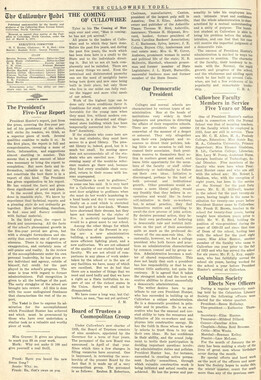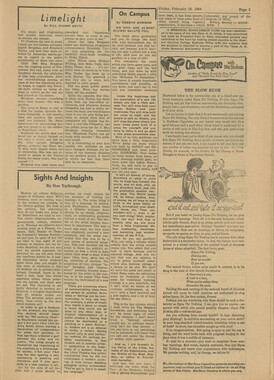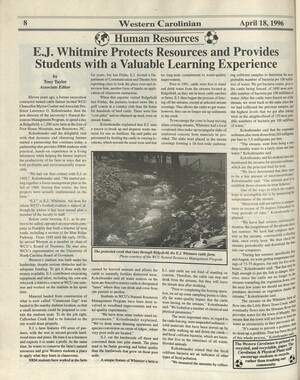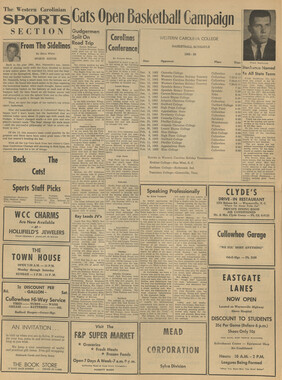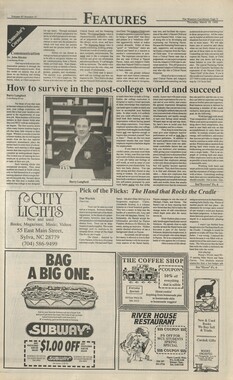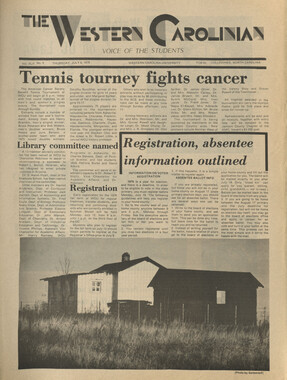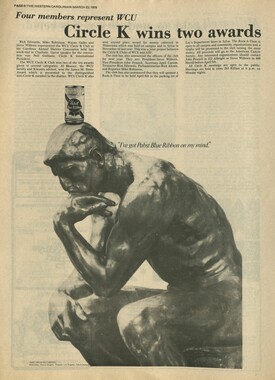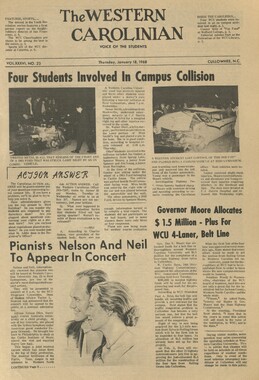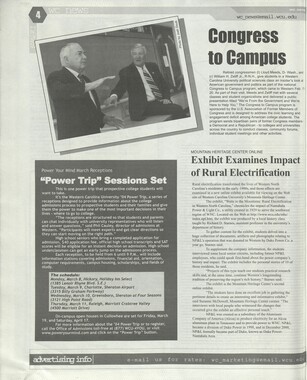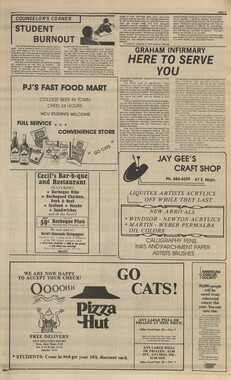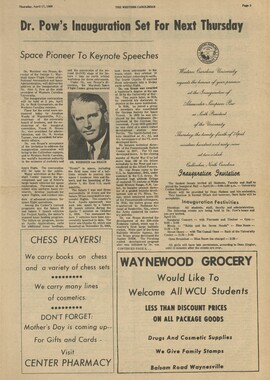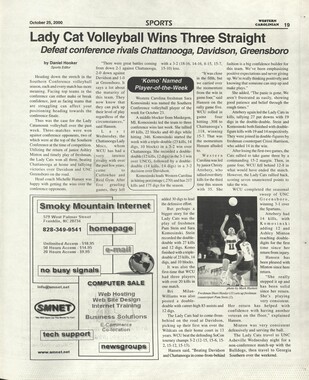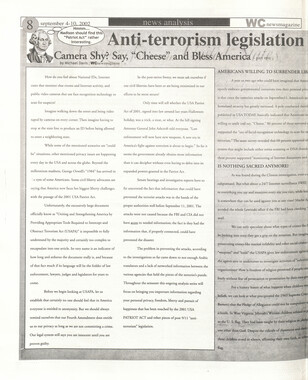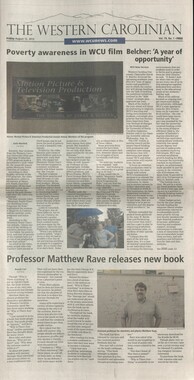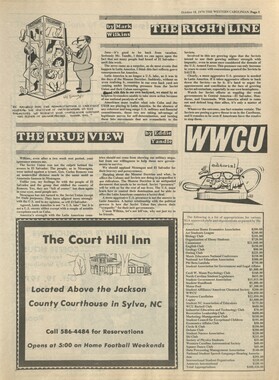Western Carolina University (21)
View all
- Canton Champion Fibre Company (2308)
- Cherokee Traditions (291)
- Civil War in Southern Appalachia (165)
- Craft Revival (1942)
- George Masa Collection (137)
- Great Smoky Mountains - A Park for America (3080)
- Highlights from Western Carolina University (422)
- Horace Kephart (973)
- Journeys Through Jackson (159)
- LGBTQIA+ Archive of Jackson County (89)
- Oral Histories of Western North Carolina (318)
- Picturing Appalachia (6617)
- Stories of Mountain Folk (413)
- Travel Western North Carolina (153)
- Western Carolina University Fine Art Museum Vitreograph Collection (129)
- Western Carolina University Herbarium (92)
- Western Carolina University: Making Memories (738)
- Western Carolina University Publications (2491)
- Western Carolina University Restricted Electronic Theses and Dissertations (146)
- Western North Carolina Regional Maps (71)
- World War II in Southern Appalachia (131)
University of North Carolina Asheville (6)
View all
- Allanstand Cottage Industries (62)
- Appalachian National Park Association (53)
- Bennett, Kelly, 1890-1974 (1463)
- Berry, Walter (76)
- Brasstown Carvers (40)
- Carver, George Washington, 1864?-1943 (26)
- Cathey, Joseph, 1803-1874 (1)
- Champion Fibre Company (233)
- Champion Paper and Fibre Company (297)
- Cherokee Indian Fair Association (16)
- Cherokee Language Program (22)
- Crowe, Amanda (40)
- Edmonston, Thomas Benton, 1842-1907 (7)
- Ensley, A. L. (Abraham Lincoln), 1865-1948 (275)
- Fromer, Irving Rhodes, 1913-1994 (70)
- George Butz (BFS 1907) (46)
- Goodrich, Frances Louisa (120)
- Grant, George Alexander, 1891-1964 (96)
- Heard, Marian Gladys (60)
- Kephart, Calvin, 1883-1969 (15)
- Kephart, Horace, 1862-1931 (313)
- Kephart, Laura, 1862-1954 (67)
- Laney, Gideon Thomas, 1889-1976 (439)
- Masa, George, 1881-1933 (61)
- McElhinney, William Julian, 1896-1953 (44)
- Niggli, Josephina, 1910-1983 (10)
- North Carolina Park Commission (105)
- Osborne, Kezia Stradley (9)
- Owens, Samuel Robert, 1918-1995 (11)
- Penland Weavers and Potters (36)
- Roberts, Vivienne (15)
- Roth, Albert, 1890-1974 (142)
- Schenck, Carl Alwin, 1868-1955 (1)
- Sherrill's Photography Studio (2565)
- Southern Highland Handicraft Guild (127)
- Southern Highlanders, Inc. (71)
- Stalcup, Jesse Bryson (46)
- Stearns, I. K. (213)
- Thompson, James Edward, 1880-1976 (226)
- United States. Indian Arts and Crafts Board (130)
- USFS (683)
- Vance, Zebulon Baird, 1830-1894 (1)
- Weaver, Zebulon, 1872-1948 (58)
- Western Carolina College (230)
- Western Carolina Teachers College (282)
- Western Carolina University (2008)
- Western Carolina University. Mountain Heritage Center (18)
- Whitman, Walt, 1819-1892 (10)
- Wilburn, Hiram Coleman, 1880-1967 (73)
- Williams, Isadora (3)
- Cain, Doreyl Ammons (0)
- Crittenden, Lorraine (0)
- Rhodes, Judy (0)
- Smith, Edward Clark (0)
- Appalachian Region, Southern (3032)
- Asheville (N.C.) (1945)
- Avery County (N.C.) (26)
- Blount County (Tenn.) (195)
- Buncombe County (N.C.) (1680)
- Cherokee County (N.C.) (283)
- Clay County (N.C.) (556)
- Graham County (N.C.) (238)
- Great Smoky Mountains National Park (N.C. and Tenn.) (525)
- Haywood County (N.C.) (3573)
- Henderson County (N.C.) (70)
- Jackson County (N.C.) (4925)
- Knox County (Tenn.) (35)
- Knoxville (Tenn.) (13)
- Lake Santeetlah (N.C.) (10)
- Macon County (N.C.) (421)
- Madison County (N.C.) (216)
- McDowell County (N.C.) (39)
- Mitchell County (N.C.) (135)
- Polk County (N.C.) (35)
- Qualla Boundary (982)
- Rutherford County (N.C.) (78)
- Swain County (N.C.) (2185)
- Transylvania County (N.C.) (270)
- Watauga County (N.C.) (12)
- Waynesville (N.C.) (86)
- Yancey County (N.C.) (72)
- Aerial Photographs (3)
- Aerial Views (60)
- Albums (books) (4)
- Articles (1)
- Artifacts (object Genre) (228)
- Bibliographies (1)
- Biography (general Genre) (2)
- Cards (information Artifacts) (38)
- Clippings (information Artifacts) (192)
- Copybooks (instructional Materials) (3)
- Crafts (art Genres) (622)
- Depictions (visual Works) (21)
- Design Drawings (1)
- Digital Moving Image Formats (2)
- Drawings (visual Works) (185)
- Envelopes (101)
- Exhibitions (events) (1)
- Facsimiles (reproductions) (1)
- Fiction (general Genre) (4)
- Financial Records (12)
- Fliers (printed Matter) (67)
- Glass Plate Negatives (381)
- Guidebooks (2)
- Internegatives (10)
- Interviews (823)
- Land Surveys (102)
- Letters (correspondence) (1045)
- Manuscripts (documents) (618)
- Maps (documents) (177)
- Memorandums (25)
- Minutes (administrative Records) (59)
- Negatives (photographs) (6090)
- Newsletters (1290)
- Newspapers (2)
- Notebooks (8)
- Occupation Currency (1)
- Paintings (visual Works) (1)
- Pen And Ink Drawings (1)
- Periodicals (194)
- Personal Narratives (10)
- Photographs (12977)
- Plans (maps) (1)
- Poetry (6)
- Portraits (4568)
- Postcards (329)
- Programs (documents) (181)
- Publications (documents) (2444)
- Questionnaires (65)
- Relief Prints (26)
- Sayings (literary Genre) (1)
- Scrapbooks (282)
- Sheet Music (2)
- Slides (photographs) (402)
- Songs (musical Compositions) (2)
- Sound Recordings (802)
- Specimens (92)
- Speeches (documents) (18)
- Tintypes (photographs) (8)
- Transcripts (329)
- Text Messages (0)
- A.L. Ensley Collection (275)
- Appalachian Industrial School Records (7)
- Appalachian National Park Association Records (336)
- Axley-Meroney Collection (2)
- Bayard Wootten Photograph Collection (20)
- Bethel Rural Community Organization Collection (7)
- Blumer Collection (5)
- C.W. Slagle Collection (20)
- Canton Area Historical Museum (2110)
- Carlos C. Campbell Collection (462)
- Cataloochee History Project (64)
- Cherokee Studies Collection (4)
- Daisy Dame Photograph Album (5)
- Daniel Boone VI Collection (1)
- Doris Ulmann Photograph Collection (112)
- Elizabeth H. Lasley Collection (1)
- Elizabeth Woolworth Szold Fleharty Collection (4)
- Frank Fry Collection (95)
- George Masa Collection (173)
- Gideon Laney Collection (452)
- Hazel Scarborough Collection (2)
- Hiram C. Wilburn Papers (28)
- Historic Photographs Collection (236)
- Horace Kephart Collection (861)
- Humbard Collection (33)
- Hunter and Weaver Families Collection (1)
- I. D. Blumenthal Collection (4)
- Isadora Williams Collection (4)
- Jesse Bryson Stalcup Collection (47)
- Jim Thompson Collection (224)
- John B. Battle Collection (7)
- John C. Campbell Folk School Records (80)
- John Parris Collection (6)
- Judaculla Rock project (2)
- Kelly Bennett Collection (1482)
- Love Family Papers (11)
- Major Wiley Parris Civil War Letters (3)
- Map Collection (12)
- McFee-Misemer Civil War Letters (34)
- Mountain Heritage Center Collection (4)
- Norburn - Robertson - Thomson Families Collection (44)
- Pauline Hood Collection (7)
- Pre-Guild Collection (2)
- Qualla Arts and Crafts Mutual Collection (12)
- R.A. Romanes Collection (681)
- Rosser H. Taylor Collection (1)
- Samuel Robert Owens Collection (94)
- Sara Madison Collection (144)
- Sherrill Studio Photo Collection (2558)
- Smoky Mountains Hiking Club Collection (616)
- Stories of Mountain Folk - Radio Programs (374)
- The Reporter, Western Carolina University (510)
- Venoy and Elizabeth Reed Collection (16)
- WCU Gender and Sexuality Oral History Project (36)
- WCU Mountain Heritage Center Oral Histories (25)
- WCU Oral History Collection - Mountain People, Mountain Lives (71)
- WCU Students Newspapers Collection (1923)
- Western North Carolina Tomorrow Black Oral History Project (69)
- William Williams Stringfield Collection (2)
- Zebulon Weaver Collection (109)
- African Americans (390)
- Appalachian Trail (35)
- Artisans (521)
- Cherokee art (84)
- Cherokee artists -- North Carolina (10)
- Cherokee language (21)
- Cherokee pottery (101)
- Cherokee women (208)
- Church buildings (190)
- Civilian Conservation Corps (U.S.) (111)
- College student newspapers and periodicals (2012)
- Dams (108)
- Dance (1023)
- Education (222)
- Floods (63)
- Folk music (1015)
- Forced removal, 1813-1903 (2)
- Forest conservation (220)
- Forests and forestry (1198)
- Gender nonconformity (4)
- Great Smoky Mountains National Park (N.C. and Tenn.) (181)
- Hunting (47)
- Landscape photography (25)
- Logging (122)
- Maps (83)
- Mines and mineral resources (9)
- North Carolina -- Maps (18)
- Paper industry (38)
- Postcards (255)
- Pottery (135)
- Railroad trains (72)
- Rural electrification -- North Carolina, Western (3)
- School integration -- Southern States (2)
- Segregation -- North Carolina, Western (5)
- Slavery (5)
- Sports (452)
- Storytelling (243)
- Waterfalls -- Great Smoky Mountains (N.C. and Tenn.) (66)
- Weaving -- Appalachian Region, Southern (280)
- Wood-carving -- Appalachian Region, Southern (328)
- World War, 1939-1945 (173)
Western Carolinian Volume 70 Number 12
Item
Item’s are ‘child’ level descriptions to ‘parent’ objects, (e.g. one page of a whole book).
-
-
GENDER ACROSS CULTURES RESEARCH | CONFERENCE TO BE HELD AT WCU MARCH 29 "Gender Across Cultures, the fifth annual gender research conference at Wester Carolina University, willbe held Wednesday, March 29, in AK. Hinds University Center. Part of the Womens History Month activities at WCU, the daylong conference is sponsored by the university's Women's Studies Program, Women's Center and College of Arts and Sciences. The conference will begin at 9a.m. with a keynote address by Cassandra Chambliss, aWCUalumnawhoworksasafolkioristandethnographerspecializing inreligious rituals and pilgrimage in Middle Eastern and North African traditions. A resident of Egypt for three years, Chambliss earned her bachelors, degree in English and French at WCU in 1994. She received a master's degree in African languages and literature at the University of Wisconsin-Madison, and is currently working on her doctoral degree in folkiore at Indiana University. During her presentation in the University Center Grandroom, Chambliss will discuss womens roles in traditional Egyptian religious life, and the impact of religion in the lives of Egyptian women. Concurrent paper presentations will be given from 10 a.m. until 10:50 a.m., and again from 1 to 3:50 p.m. at various locations around the 15 Presy Release, University Center. Among the paper topics are Life Fit: Coping for a Lifetime = An Intervention for Preadolescent Females, The Effects of Care-giving Expectations on Women Caring for a Family Member with Alzheimers Disease, The Body Project, Women and Religion: Cracking Dogmatic and Cultural Boundaries, Confronting Whiteness. in American Women's History, Socialization of Gender and Gender and Pay Differentials." A roundtable discussion, Betty Friedans Feminist Mystique: Have Things Changed?, will be held at 1 p.m. in the Cardinal Room. Poster sessions will be held in the Grandroom from 11 a.m. until noon, followed by the conference luncheon at noon in Club illusions featuring Warren Wilson College faculty member Siti Kusujiarti speakingon"Conceptualization and ImplementationofWelfarePoliciesinIndonesia. Thecostforlunchis$10, andiunch participants are asked to R.S.\.P. by calling (828) 227-7268 or (828) 227-3839. The complete conference schedule is available by clicking on the Web at: http:/www.wcu.edu/womenstudies/genderacrosscultures.html. For more information, contact Marilyn Chamberlin, assistant professor in WCUs department of anthropology and sociology, at (828) 227-3839. Running in High Heels leaves the viewer searching for a solution By Jessica Jarrard + WCnewsmagazine Women comprise nearly 52% of the population but certainly do not represent anywhere near 52% of the government. This was addressed in a documentary titled Running in High Heels. While documentaries seem to be all the rage, this one was lacking in conclusions and viable proof of assertions. The documentary begins in a beauty shop, of all places. What better way to tell women of the world to unite against a male-dominated society than by beginning with a woman being primped in the beauty salon. While being a feminist certainly does not deny any woman the right to feel beautiful, M.T. Manelski should have known that beginning a feminist documentary in a beauty shop would certainly raise questions. Emily Csendes, a math teacher from New York, is running for US Senate on the Republican ticket. The camera follows her around on the campaign trail, even to her beauty shop, while snippets of interviews with other prominent women are interjected (hardly any males were interviewed). Why would Manelski choose to follow a Republican female to run in one of the most liberal states in the nation? Was it because she knew that Csendes would be beaten in a landslide and would thus be an ideal martyr? Perhaps it was to say that while most of American women are Democrats, it is important for women to vote for other women regardless of ideology. While the purpose of a documentary is to inform the viewer of all sides of a topic, some tangible research and proof is certainly lacking in this film. My biggest pet peeve of any type of documentary is to address a problem without successfully introducing solutions. Is the solution to vote for women regardless of ideology? Your guess is as good as mine. Other than being a Republican woman in a clearly liberal state, Csendes has many other things going against her. While that makes many sympathetic for her, itis clear in the video clips of her with the voting population that she is tired, short-tempered and not interested in what the voters have to say. The camera often catches her frowning, blatantly ignoring a Documentary Commentary voter's question or comment, and avoiding questions posed by voters. This is bad for any candidate, regardiess of gender or party. However, itis evident that Csendes is going to have to work harder to achieve her goal, as she is a Republican. I's obvious that the state of New York is not afraid of a woman (even one not native to NY) in the US Senate; just look at Hillary Clinton. The most interesting person interviewed was Sherrye Henry, a prominent woman in the feminist movement. She argues that women hurt themselves in politics by saying that they care about womens issues, but on Election Day, they fail to prove it when they cast their vote. Phyllis Schlafly, an easy target for feminists, was also interviewed. Schlafly is an extremely conservative woman whose very life contradicts her message. She preaches that feminists are ruining society for both men and women because they demand rights of women. She argues that women belong in the home and that every woman should find a man to take care of her. However, Schlafly worked her way through Harvard and went on to get her Masters. Perhaps a good question to ask her in the documentary would have been, Why are you preaching to women not to work, when you yourself are well-educated and work? instead, Maneiski lets the hard questions slide, knowing that her pro-feminist audience hated Schlafly before the documentary began. Political speculation is full of statistics. An alarming statistic quoted by Henry states scientific projections show that it will be "300-700 years before women reach political equality in the United States. This number seems incredibly large. | certainly would like to see the logic behind it. Henry also says that a UN study asserts that it will be 1,000 years before women around the world will reach political equality. Again, I'd like to see proof. If there is one thing Ihave learned in school itis that statistics, if manipulated correctly, can tell you what you want to hear to prove a point. Should women vote for other women despite their political views? Should | jump on Hillary Clinton's bandwagon just because | am a woman? It's going to take a lot to convince me to vote for someone based solely on gender, since | have very litle in common with Clinton ideologically. When voting, one must decide upon the most important issue to them and vote accordingly. If the purpose of this film is to encourage women to vote for women regardless of ideology, how would Manelski feel if Phyllis Schlafly ran? Overall, this film skates around a solution to the problem, creating a game of us v. them, making men the triumphant and women the victims.
Object
Object’s are ‘parent’ level descriptions to ‘children’ items, (e.g. a book with pages).
-
The Western Carolinian is Western Carolina University's student-run newspaper. The paper was published as the Cullowhee Yodel from 1924 to 1931 before changing its name to The Western Carolinian in 1933.
-
